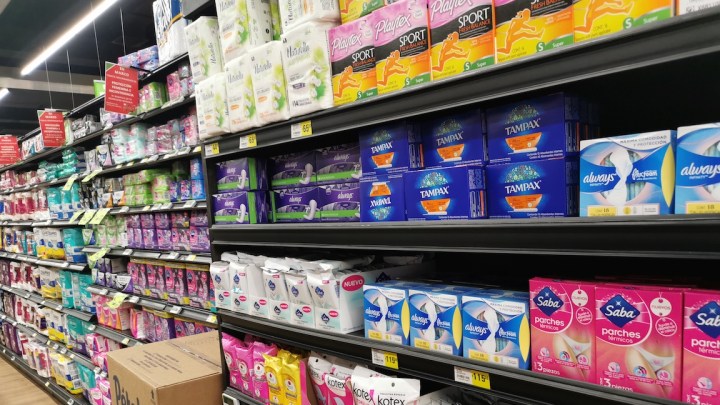
In Mexico City, a plastics ban prompts debate over women’s access to tampons
In Mexico City, a plastics ban prompts debate over women’s access to tampons

This year, Mexico City started a new phase of its single-use plastic ban. The law now forbids these, among other plastic products: straws, coffee capsules and tampon applicators. The ban on applicators has raised questions about women’s access to female sanitary products, creating tensions among businesses, feminists, environmentalists and the government.
“Menstrual products, including tampons, are contributing to the pollution of our environment,” said Ornela Garelli, who works for Greenpeace Mexico on consumption issues.
Garelli said there’s no data showing how much female sanitary products contribute to pollution, but the nonprofit sees the products as similar to disposable diapers, which account for almost 7% of waste. She also said the government should take more steps to ensure women have access to alternative products. And she said the plastics industry should have developed other options.
A feminist nonprofit group fighting taxes on menstrual sanitary products opposes the ban on plastic tampons. The group, Menstruación Digna, said these products should be free for low-income women.
“The law has no gender perspective,” said Anahí Rodríguez, the group’s spokesperson, speaking in Spanish.
She said tampons are the best choice for many women, while environmentally friendly choices, like menstrual cups, are expensive and rare.
“The industry is not against regulations, but the government didn’t give us enough time to develop alternatives to single-use plastics,” said Susana Hernández, technical manager for ANIPAC, Mexico’s National Association of the Plastic Industry, speaking in Spanish.
Hernández said the plastic ban has resulted in business closures and layoffs.
“According to data collected by Mexico’s Congress, female sanitary products can cost up to 8% of a woman’s income,” said Martha Tagle, a congresswoman who opposes the ban on plastic applicators as well as taxes on menstrual products, speaking in Spanish.
She said taxes on those products provide the equivalent of about $143 million annually to the government, while jewelry and magazines are tax-exempt.
Women hold nearly half the seats in Mexico’s Congress, and Tagle said gender parity has facilitated more discussion of women’s issues.
But the congresswoman said the plastics ban, and the way it affects women, show there is still much to be done.
There’s a lot happening in the world. Through it all, Marketplace is here for you.
You rely on Marketplace to break down the world’s events and tell you how it affects you in a fact-based, approachable way. We rely on your financial support to keep making that possible.
Your donation today powers the independent journalism that you rely on. For just $5/month, you can help sustain Marketplace so we can keep reporting on the things that matter to you.

















